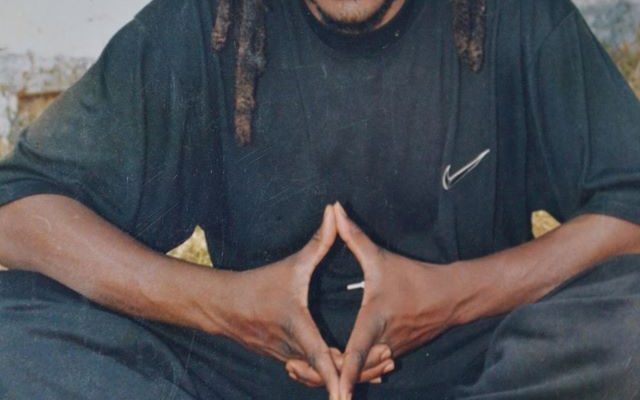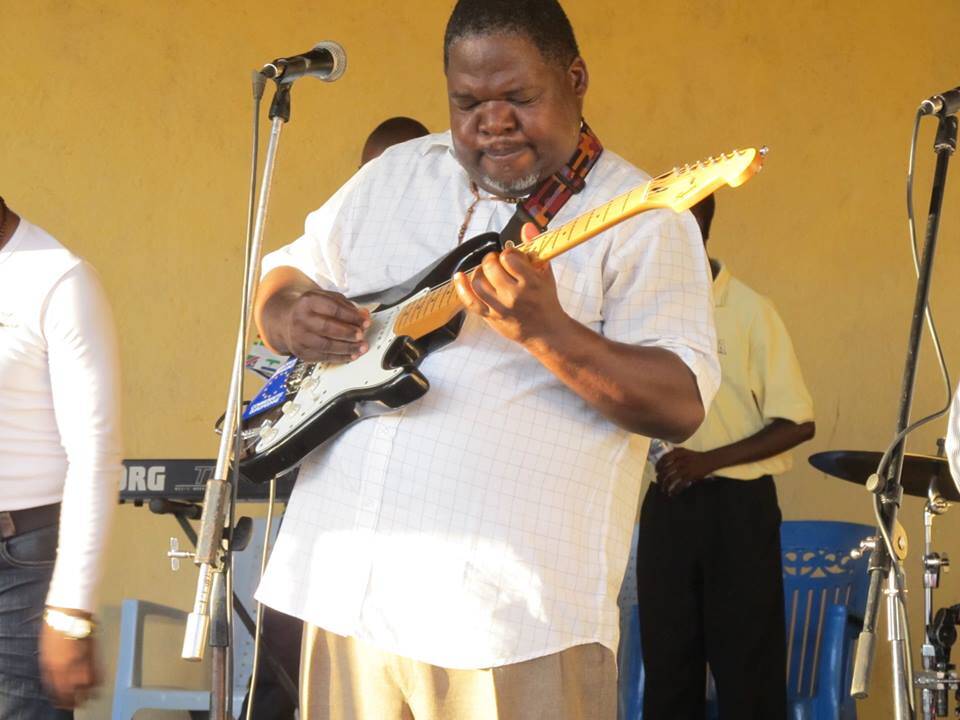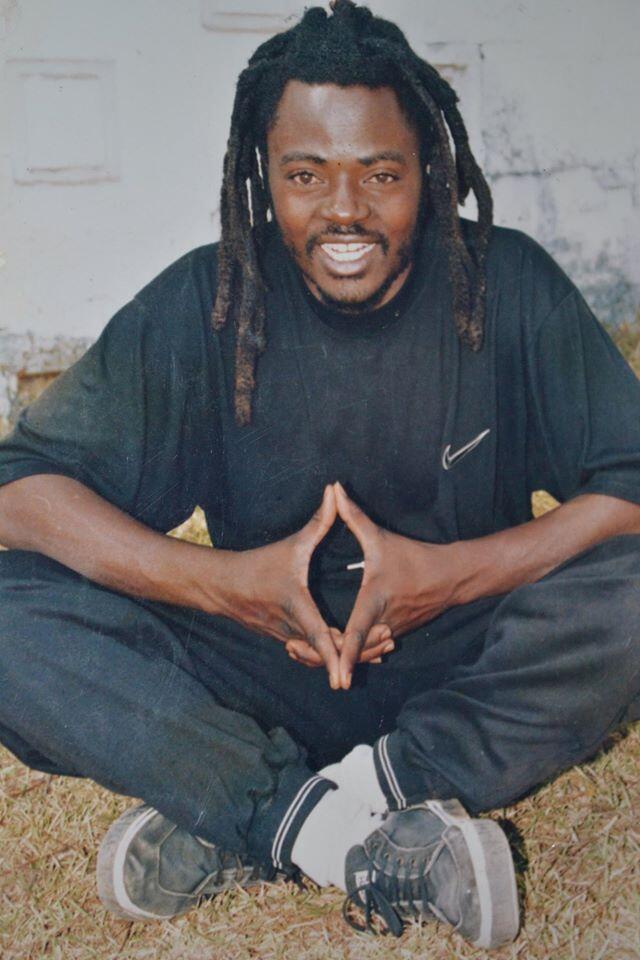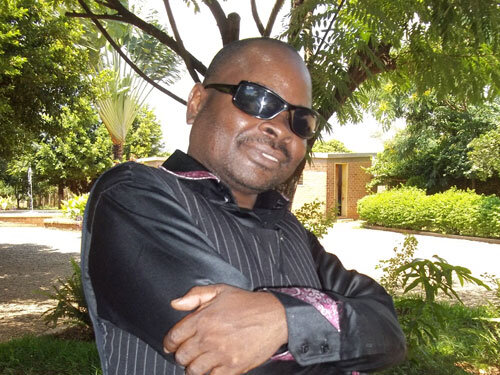
What is the most performed kind of music in Malawi? It should be reggae music. Malawi can safely be called ‘The Mainland Jamaica’ as far as the dominance of reggae music is concerned. For close to three decades now, reggae music has been performed by a whole generation of artists.

When one tries to follow the route, for example from the time Kalimba Band produced their ground-breaking album three decades ago, ‘Make Friends With The World’, it can be observed that the genre kept on being re-worked on and has tremendously changed. But as of today, there are three types of reggae music in Malawi, all named after their places of origin.
The first is Balaka reggae. It originated from Balaka district in Southern Malawi. Paul Banda created that sound through the band he founded in 1977, Alleluya Band. Through it, he created an open reggae sound. He maintained the signature keyboard reggae tempo sound, but added a heavy sound of lead and rhythm guitars and percussions. This kind of music dominated Malawi from the early 1990s to around 2005.
It has produced big names in the Malawi music industry. Despite most of them no longer active, their presence on the scene is still widely being felt. The genre carried a social message, dominantly, the calling of people to proper ways of life and a take on politics, especially by the man who is responsible for popularizing the beat, Lucius Banda, Paul’s younger brother.
The second type of reggae music in Malawi is Chileka reggae. It originates from Chileka, Blantyre, Malawi’s commercial city in the Southern region. Just like any other reggae beat, it also has the signature keyboard tempo sound. But unlike the Balaka reggae, which has a medium tempo, Chileka’s sound of this instrument is a bit slower. This is the closest reggae beat to the Jamaican one.

The area has produced legends, as far as music in Malawi is concerned. Dr. Daniel Kachamba was from that area, the man who mesmerized the whole world with his Kwela music, before the South Africans took it as their own kind of music. Besides him, there were also the Fumulani brothers, Arnold, Robert and Sailesi, with their Likhubula Band. These fathered another Fumulani generation who would later dominate reggae music in Malawi; Gift, Anjiru, Chizondi, Musamude, Moda and Chizondi.
But the founder of the modern Chileka reggae sound is Evison Matafale. He died on November 27, 2001 while in Police custody. In 1999 he released his first reggae album, Kuimba One, with his cousins, the Wailing Brothers. He broke up with them two years later and formed the Black Missionaries Band with his other cousins, the Fumulani brothers.
He left the band in its infancy. But with the leadership of Musamude, and later on Anjiru, it survived and still dominates the whole reggae sound in Malawi. Its message is dominantly social-justice, the Jamaican view of the world.
The last reggae type is Mayaka. It originates from Mayaka area, in Zomba district, the old capital city of Malawi, in the Southern region. Unlike the other two types of reggae music in Malawi, which have clear place of origin and the founder behind it, Mayaka reggae is disputable. The signature keyboard tempo sound of reggae music is faster than the two.
There is no much presence of the guitars as like in Balaka reggae and the percussions have a limited influence on the sound. Its message is much on the advisory role. It is realistic in nature and tries to tackle the world as it is compared to the Balaka message which is dominantly idealistic. The earliest mainstream presence of such kind of music can be traced back to 1998.

Two artists, Enort Mbandambanda and Anthony Makondetsa, in their maiden albums, ‘Kuchimwa Kulibe Mwini’ and ‘Tisatengeke’, respectively, recorded in Balaka, sounded Mayaka. Later on in his career, Makondetsa, who is from Blantyre, Chileka, adopted his home’s reggae and would turn to be the music that defined him to his audience.
But the coming in of Joseph Nkasa in 2002 with his album, ‘Wayenda Wapenga’ seemed to have shifted the debate to himself as the man behind Mayaka reggae. His following album in 2003, ‘Tigwirane Manja’ remains one of the most popular albums in Malawi. It was Mayaka.
Himself being from Mayaka area, he owned the sound as his own, and the genre was named after his home. Even the music having the advisory message was his creation since he came on the scene as a counsellor, hence his nickname, ‘Phungu’ (Counselor).
His success, however, with this type of music attracted a host of artist who would later build their names using the beat and the message. Artists like Thomas Chibade, from Zomba as well, Moses Makawa and John Malunga are examples of people who performed and popularized Mayaka reggae.
But this did not go well with Joseph Nkasa as later on in his career, in a song titled ‘Pin Code’, he sung of other musicians trying to copy his style of music so as to keep him down.
*Wonderful Mkhutche is a speech writer, a political scientist and a manuscript developer and editor.














Matafale is favoured to be, including the Black Missionaries Band.
Paul Banda plays both tunes. But Paul Banda is Great.
king of reggae was bright mnkhata and makasu we dont forget bigman evison and his band
ulemu kwa matafale ndi gulu ra karimba ngakhale mwaripatura kaya danari amalawi kaya
Mphwayi ndi soka,,ulesi ndi minyama,,nguluwe idalira msampha utaning’a,,,,,,,we play international music,,,,coz we know who we’re,
Tikat tinene za reggea ndi msg komaso gospel osati zamkasa wanuyo ,reggea is for africaz ndiye international imene mkufuna ndiiti ?
malemu Tafale and Bright Nkhata
mphuno salota ndi reggae? kkkkk ndi Nkasa yemwe koma ulesi ndi minyadi
mphuno salota ndi reggae? kkkkk ndi Nkasa yemwe koma ulesi ndi minyadi
Kkkkkkkkkk,ayi koma pokhapo pagwaladi angoiwala ofunika kuwakumbusa
Pa list yanuyo wa Reggae palibe ife timadzi Gwaladi Joe
Pa list yanuyo wa Reggae palibe ife timadzi Gwaladi Joe
There is nothing to blame Muluzi government, nthawi yake yakufa inakwana, time mark New York time mark Matafale even anjiru sung tidikile yesu anene yekha.
i support Thafali only but if u inlude enawa pa Reggaepo ndiye kuti Joe Gwaladi mumuikemo coz nayeso malegenzi amawakwapula heavy
Lucius amatha reggae it’s just that he doesn’t restrict all his songs to reggae in his albums, but he does reggae, He started even b4 matafale did
The blacks n matafale
Matafale obvious
No man iz god or immortal may b pagan gods der r jst root to mdubz muzik
They dont sing reggae ….thats improved rumba…..! If u are talking about reggae here comes the artist n not frm nyasa but jamaica …..joseph hill n many more.
Then say something not just hy guys am mzee from south Africa wats that
Hy guys am mzee from south africa
Matafale he deserve to be crown the King of Reggae
Matafale anali Big pa reggae musik,nde pot matafale anatisiya Mablacks ali pa 1,enawa sanaimbepo reggae.
Ndizitsulu zonse izo bora john malunga
kunali malemu bright nkhata ndi katundu
Tafale and his guys still remain the best amoung the lest even if mw isnt a drop of reggae music. Thumb up 4 dem!
Tafale and his guys still remain the best amoung the lest even if mw isnt a drop of reggae music. Thumb up 4 dem!
Evason matafale Timba mbalame yochenjela king of reagee palibenso apa
Great article! I loved it.
Matafale samayimba reggae amayimba lokolo amalawi chimizi basi
I for one I go for EVISON MATAFALE.
omutsatila Matafale adali Gift fumulani ankaimbaso Raggae ya bwino
when we talk about raggae we should respect and put our hands together to ”kalimba/makasu band” u will never found the songs like kalimba produced by any1 in malawi. and big up to evison matafale he also did his part he was getting there. others are just copying from others there’s no international reggae music in malawi
Amalawi, zathu tipanga liti? Raggae chamba cha ku Jamaica kwa America , kodi makolo athu analibe magule? Basi tizingolimbana zinthu za eni ake aku maiko ena. Chonde tiyeni tisapote chamba chathu, mwachisanzo tili ndi mbenjere, gwaladi , tili ndi Mfumu wambale nkandawire amayimba nyimbo za chi Malawi osati enawo. Let us put Malawi on the map with our traditional songs not those tunes from overseas. WAKE UP MALAWI WAKE UP
sakuziwa chimene akunena
i know chibade ndi mr jokes…
Matafale the reggea machine
MATAFALE……MKASA KKKKKKKKK !!!!
Soon as possible iwill be like matafale my is lord is lord is under olenga dzuwa
thafale bwayi anali boo mbora ku ma blacks masanje phala nyasi kwa joe njasa
Panopa athu akuimba Raggie music,ndikakhalapansi ndikuunika bwino,ndimaona kuti matafale ankayesesa ngakhale athu omusatila matafale omwe akuimbabe pano(black missionaries)sifika paiye,koma pano kuli athu omwe akuimba ndithu try POSTIV YUT if uknow raggie u wii not ask again
The answer is Allan namoko
The answer is Allan namoko
why forgeting Makasu band? sometimes i wonder why pipo fall in love?
why forgeting Makasu band? sometimes i wonder why pipo fall in love?
Reggae music is shit.
Reggae music is shit.
Of course Matafale was king of Reggie, just imagine the poison so sweet
Of course Matafale was king of Reggie, just imagine the poison so sweet
#matafale ndkawawa up to now his music keep him alive even in my 4n i gotta alot of him..sindkudziwa kuti akadafikira pano ndkukhulupilira kut Malawi-Reg bwez ili pa Map abwino…not nowadayz Mablacks afika pa #shit si Regea yeniyen akuimba #secular
#matafale ndkawawa up to now his music keep him alive even in my 4n i gotta alot of him..sindkudziwa kuti akadafikira pano ndkukhulupilira kut Malawi-Reg bwez ili pa Map abwino…not nowadayz Mablacks afika pa #shit si Regea yeniyen akuimba #secular
hhhhhhhhhhhhhhhhhhhhh………………better poul banda koma mpaka mkasa reggae nde ndisiya reggae………….salutation to EVISON MATAFALE
MATAFALE ZINAZI AYI.
Kodi enawo amaimbanso reggae? Ine ndikungoonapo Matafale yekhatu pa maina mwalembawo.
freedom!!..Matafale
joseph nkasa, lucious and Paul banda saimba regea.
OBVIOUS TAFALE EVI NDI DHIL
Kkkkkkkkk koma admin iwe ukundisangalasa kwambiri nkhani zako asaaaaa mpakana nkasa leggea aaaa iwe be serious if u want to post nkhani zako pano.
Evison Matafale… Poison so sweet… Olakwa ndani? Etc
koma mbudzi zimenedzi josephy mkasa ndi paul banda amayimba reggae? tamafunsanani musanachite post manyaka anuwo
Gift Fumulani the late
Am not scared coz I dont care #KingTafale
Ndikuona Kuti a Malawi24 Simudziwa Reggae Coz Nkasa Samaimba Reggae..
Reggae Ili Ku Chileka.
Evison remains malawis king of reggae
ine ndingoti wolenga dzuwa timamudikila
olakwa ndani
Kkkkkkkiest
matafale kalimba gift fumulani ndamene amayimba reggae yabwino osati mbuzi zanu zama black missionarry zija
limbani banda
osaika limban banda
Muga Mtaya and the Sinners Band needs mentioning not forgetting Limbani Banda
osaika limban banda
King of raggae matafale, not forgtng gift fumulan, nanga musamude bwa analinso wachabe pankhan yomanza sound, zinazo mwanama
King of raggae matafale, not forgtng gift fumulan, nanga musamude bwa analinso wachabe pankhan yomanza sound, zinazo mwanama
Kuyimba Eee Ma Ta Fa Li
Kuyimba Eee Ma Ta Fa Li
Tafale, that was the deal
Tafale, that was the deal
Frankly speaking, Matafale is the best…not forgetting the Malawi’s leading reggae group; The Black Missionaries’…enawo sitikuwadziwa ife
Frankly speaking, Matafale is the best…not forgetting the Malawi’s leading reggae group; The Black Missionaries’…enawo sitikuwadziwa ife
Joe gwaladi
Joe gwaladi
We malawians are miles away from reggae music.Malawi ikanafikapo ndithu Had it been that Evison Matafale is still alive…..
We malawians are miles away from reggae music.Malawi ikanafikapo ndithu Had it been that Evison Matafale is still alive…..
ukunama umafuna uwone chani kt ku Malawi amayimba reggae… pali mitundu yopitilira 6ya chamba cha reggae. ngt REGGAE ROOTS,CONSICIOUS, etc
ukunama umafuna uwone chani kt ku Malawi amayimba reggae… pali mitundu yopitilira 6ya chamba cha reggae. ngt REGGAE ROOTS,CONSICIOUS, etc
Kkkkkkkk reggae ku malawi
The really answer of raggae music in malawi is matafare and bleak mitionares not….This noses that u telling us mw24
The really answer of raggae music in malawi is matafare and bleak mitionares not….This noses that u telling us mw24
in Malawi the king of reggae was Evison Matafale
in Malawi the king of reggae was Evison Matafale
true abro
U know mr
Evison Matafale. The Legend of Malawi
Evison Matafale. The Legend of Malawi
We play international music! Coz we know what we want! Make our national identity in music aah!!!!
We play international music! Coz we know what we want! Make our national identity in music aah!!!!
Makasu…Thafale
Makasu…Thafale
I swear no body will be like #Evison_Matafale he was a great reggae musician. I loved him, i love him and i will never ever stop loving him!! May God do something with all those who plotted to kill him, zianthu zoipa mitima zisatana!!! Mmxiiimm!!!!
I swear no body will be like #Evison_Matafale he was a great reggae musician. I loved him, i love him and i will never ever stop loving him!! May God do something with all those who plotted to kill him, zianthu zoipa mitima zisatana!!! Mmxiiimm!!!!
big up big up to u
Show madala!
Evison mathafale was real
Evison mathafale was real
Thafale 4 ever
Thafale 4 ever
Evison matafale is the legend
Evison matafale is the legend
Matafari anali dolo
Matafari anali dolo
As 4 Me My First Vote Goes To Evison Matafari, M H S R P And My Second Vote Goes To Lucious Banda, Abel Frm Zambia.
As 4 Me My First Vote Goes To Evison Matafari, M H S R P And My Second Vote Goes To Lucious Banda, Abel Frm Zambia.
Dema waku Likuni
Dema waku Likuni
What arguments for?Dont u know dat ‘mkango wa aYuda’ composer was Reggae ambassador here in Mw?
kkkkkkk eish!!!!! #Rasta_Nkasa. I like the sound of that
kkkkkkk eish!!!!! #Rasta_Nkasa. I like the sound of that
Aa Guyz Kumanena Zowona Matafale Adali More Palibenso Pa Malawi. Zamkasazo Ndiye Zamkutu Zimenezo.
Aa Guyz Kumanena Zowona Matafale Adali More Palibenso Pa Malawi. Zamkasazo Ndiye Zamkutu Zimenezo.
If I n I come with a new #design.. I don’t mean to make u #resign..if I were u I wud just #join coz 2gether we mek things #fine…. #somewhere or #nowhere..am not #scared coz I don’t #care…. The guy was Real….
If I n I come with a new #design.. I don’t mean to make u #resign..if I were u I wud just #join coz 2gether we mek things #fine…. #somewhere or #nowhere..am not #scared coz I don’t #care…. The guy was Real….
who did dis?
who did dis?
Thafale ndi 1
#Mtendere_sinsimatu_ayi, maximum respect should go to #Evison_Matafale
“Mlw’s 3types of Reggae Music” ar u tlkng abt the 3types of reggae music or the 3types of reggae music singers? Be serious on wht u put on public domen please eish!
“Mlw’s 3types of Reggae Music” ar u tlkng abt the 3types of reggae music or the 3types of reggae music singers? Be serious on wht u put on public domen please eish!
I would rather put it this way…The fathers of reggie are…Evison himself,Frank kalonde of fighting our bones, young generation ,Jupiters,Raster waza,prince martin etc…
Eversn Matafale.
#Matafale
Take nkasa out put Kalimba/makasu band,i hope none will forget their song#sometimes I wonder,but these days let alone Matafale be de king of malawian reggae
Take nkasa out put Kalimba/makasu band,i hope none will forget their song#sometimes I wonder,but these days let alone Matafale be de king of malawian reggae
Lovely
Lovely
a udf anatiphera congoman wathu #tafale rip,,,,,,,ndipo mzimu wake ukuthoka apapawu!
YANG’ANA NKHOPE ,RIP GOD WHICH IS ABOVE N 1 WI’LL JUDGE
#Thafale anthu oipa inu munamupha..!!!
If U A Saying Its From Jamaica Whay U Support Ftball Taems Popeza Ndizongokoperaso Kwa ena Zija
Gwaladi bwa?
E Matafale anali mikulu, mikhatheya,ngwazi,khang’a amdala bambo big man wamkulu
E Matafale anali mikulu, mikhatheya,ngwazi,khang’a amdala bambo big man wamkulu
His fist album son of a poor man Lucius Banda is the best. Him is the father of reggae. Matafale is the son of reggae while the rest are cousins of reggae musik
None of them,,,,,,
Sangie angels
Respect to thafale,fumulani wa gibo,dont 4get mr MP BANDA
Evison Matafale king of reggae Music
Blessed couple…..
I know we all untitled to our own opinion but me Paul is the man too god
in Mw we sing Khunju reggae not international ai,komano among the list pali awiri okha omwe amazitsata za khunjuzo komano bg wawo nde ndi ganjaman thafale,koma vuto list yanuyo mwaganiza mwa ganja cz paul lucias & nkasa samaimba reggae ayi.
in Mw we sing Khunju reggae not international ai,komano among the list pali awiri okha omwe amazitsata za khunjuzo komano bg wawo nde ndi ganjaman thafale,koma vuto list yanuyo mwaganiza mwa ganja cz paul lucias & nkasa samaimba reggae ayi.
ndawadabwaso ase
ndawadabwaso ase
kkkkkk anthu ena akamapanga post zinthu amaganiza mpepera amwene
kkkkkk anthu ena akamapanga post zinthu amaganiza mpepera amwene
sakudziwa malawian music ndi history yake angolankhula lol
sakudziwa malawian music ndi history yake angolankhula lol
Nanenso ndadabwa naye bwanji
Nanenso ndadabwa naye bwanji
Bolani akananena thafale or ma blacks ndi Gift Fumulani, nde ama Reagge ameneo koma ndi a nkasa omwe hahahaha ndi enawo kuganiza mopepela mwina music saidziwa or cha,ba cha nyimbo samadziwa shuwa
lucius amkayimba reggae akuyamba kumene…..mumkavera nyimbo zake koma inu?
wandionjeza pakana reggae nkasa kkkk
Real reggae,is E Matafale.
Enawa mukusonyeza kuti ayi? Koma akazamwalila ndiye sikuayamikila kwake, vuto la ife amalawi ndilimenelo. Tikamuyamikila munthu ali moyo mumati timpasa matama yerrrrrere.
Enawa mukusonyeza kuti ayi? Koma akazamwalila ndiye sikuayamikila kwake, vuto la ife amalawi ndilimenelo. Tikamuyamikila munthu ali moyo mumati timpasa matama yerrrrrere.
gwalad ndi Dhilu!!
Gift fumulani is the real one
The Late Evison matafale
Robert Fumulani
olakwa mndani?mkasa amaimba mangerengere
Wonderful article Wonder! I man wants to encourage upcoming artists to come up with poetic regae laka of Linton Kwesi,Mutabaruka just to mention few!
Blessed man forever
Evi
Big up Evison matafale was real
Matafale Anali More Ndipo Nyimbo Zake Ndi More International Music
Awiro longomba,, his the malawian father of reggae,,,,kkkk..
Nkhani ndi Evison
Rite nw listening tu “chauta wamphamvu” Evison.
AM BLESSED FOREVER…………….!!!!
a very good article that is well researched. keep it up Wonderful. you are really a writer with knowledge on what u are writing
Evison Matafale
Joseph nkasa ,, watsetseleka!!!!! His the king.. No one can sing like him.. Big big up nkasa
1 matafale palibenso ndipo palibenso angazafikopo
Akuti nthawi ya Bingu,Nkasa anasintha dzina amatchulidwa kuti Joseph Bingu Nkasa,Nthawi ya Joice Banda,anali Joseph Joice Banda Nkasa,pano wasintha akuti ndi Joseph Bushiri Nkasa, ndie ena amafusa akuti cholinga cheni cheni chimene amasinthira maina ndi chani?
Nanga akubawa awachita chati,ungoti phee uwone.matafale
Nthafale waz a legend
Kkkkkkk Paja amalawi timayamikila Munthu akamwalira Enawo Mmmm tidikile kaye
matafale ndi dhilu
Nanga beat ya reggae ndiye anayeselako ndi Matafale ndipo akanakhala kuti sanamwalile bwezi pano ALIPOBE.R I P
Nuff respekt tu Evison Bishop n’ King ov reggae
Eveson, rythm. Harmony & massege
No Winner No Loser. . . . Icon Matafale.
first of All nkasa sanayimbepo reggae koma big up #matafale
Kodi phungu amayimbaso Reggae kapena nthano tinenepo pamenepo enawa tisamawalowese mu reggae guys mwina tinene kuti ndimulangizi chabe monga mwa dzina lake.
kkkkkkk
kkkkkkk
kkkkkkkkkkkkkkkkkk phungu mkasa et
Apa ndi thafale basi enawo traditonal reage
its obvious #matafale ndani sakudziwa
Matafale
RIP
Tafale Evson
when we taiking about reggae we talking the msge in the song,sunachite kutuma munthu wina iwe kuti ndikanati anandinamiza,ndipakamwa pako unanena wenkha kuti umandikonda nanga lero bwanji zaka zonsezi ine ndimagoti zanga ndi iwe dats the msge of kng matafale bigger up man
Man mwandikumbutsa nyimbo yomwe ndimayikonda thank v much May his soul rest in peace
lucius banda,palibexo
why is Nkasa on this list admin?
Kkkkkkkkkkkk! Eti mpaka che Nkasa iyaaaaaa! Kkkkkkk
Kkkkkkkkkkkkkk nayenso Ali ndi reggea yake ija yomati kuchuku!!! Kuchuku !!!!! Wayidziwa?????
lol
The Poison So Sweet And Malawi. Matafale Ndi Dhilu!
Of course it’s Matafale, of the Waseseleka fame.
I think Matafale was great
Someone, somewhere.
Rasta has answer••Matafale
Si funso loyenera. Wa reggae munthu mmodzi pamenepo mufananiza bwanji zinthu zosiyana.Timati ndi funso la chodziwadziwa kale.
ine ndy mukuganiza ndnganen ndan oposa ujen uyu mmmm ujen thafale emweyu inu aaa
No one reggae is from Jamaica,can’t compete about something from other country,africans rastas are all adopted in reggae style,no big fathers or small fathers
ujk matafare
I want to give a testimony on how I get cured from HIV/AIDS. As I was browsing through the internet on how to get cured, I saw a lady testimony praising DR Williams I never believe it before until I tried it and it really work for me am very happy right now may God bless him. this is an opportunity for you to get cured contact him via [email protected]….. and also you can contact on whatsapp number +2348143143878 THESE ARE THE DISEASE Dr.DR WILLIAMS CAN CURED. HERPES. HIV/AIDS. CANCER. LOVE SPELL VIRUS.
Fuck u idiot
Dnt stop using condoms u’ll kill mo youngsters
wolakwa ndani
Iiii koma nde wolakwa ndani?eee ai ndithu Anali machine
Evison Matafale was better off
Matafale
Evison Matafale.. he was singing real roots and culture reggae
Time mark New york.No other than Evison.RIP.MMMNMM muluzi government God knows
Evison Matafale palibe otsutsa apa
thafale man
Evison Matafale
Munthu wa mkulu
Evison matafale
Thafale